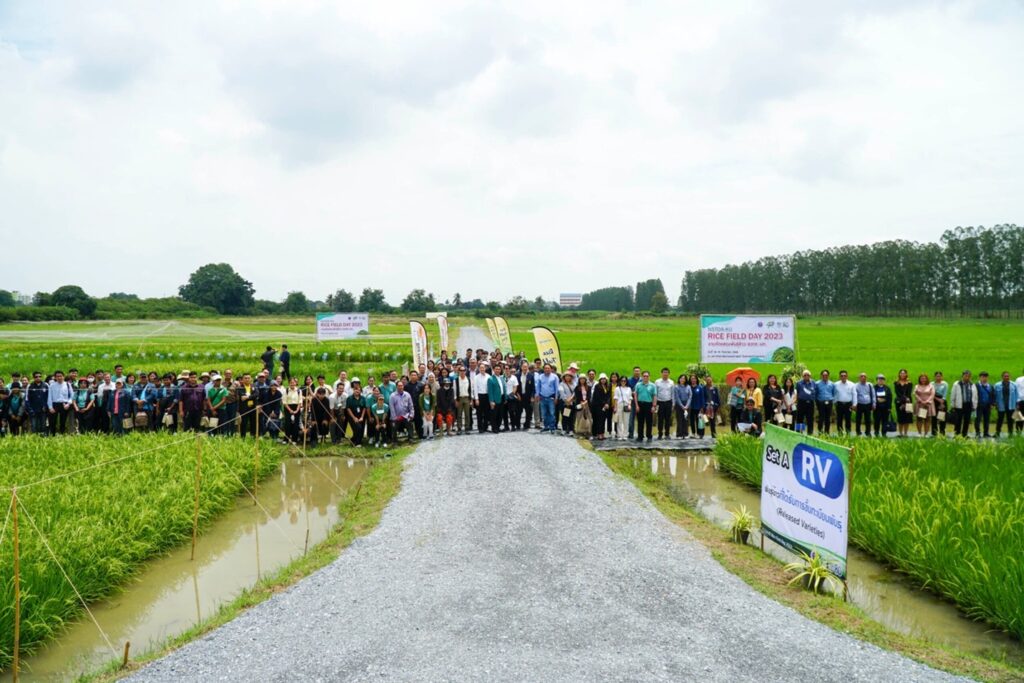BIOTEC-NSTDA and Kasetsart University jointly organized the “NSTDA-KU Rice Field Day 2023” on September 18-19, 2023. The event aimed to introduce new rice varieties developed using advanced biotechnologies to enhance climate resilience to various stakeholders, including farmers, government agencies, and the private sector, in order to promote their adoption. Assist. Prof. Dr. Nikhom Laemsak, Vice President for Innovation and Social Engagement, Kasetsart University and Dr. Wonnop Visessanguan, Executive Director of BIOTEC, presided over the opening ceremony.

The event featured a wide range of rice varieties, each possessing unique characteristics such as heat tolerance, drought resistance, flood resistance, salt tolerance, resistance to pests and diseases, as well as cooking quality and nutrition that align with consumer needs. For pest and disease resistance, the breeding program specifically targeted common issues in Thailand, including brown planthopper, bacterial blight, and rice blast. Many of the showcased varieties are ready for distribution to farmers for commercial cultivation, while some are in the process of varietal registration.

For over two decades, BIOTEC and Kasetsart University have collaborated on the rice breeding program, utilizing advanced biotechnology methods such as marker-assisted selection technology and omics technologies. Over the years, this collaboration has expanded to involve government agencies and universities within Thailand, as well as neighboring countries, including the Rice Department, Rajamangala University of Technology Lanna, Ubon Ratchathani University, the National Agriculture and Forestry Research Institute (NAFRI) of Lao PDR, and the Department of Agricultural Research (DAR) of Myanmar. The program has received generous funding from both local and international organizations, such as the Agricultural Research Development Agency (ARDA), the Rockefeller Foundation, and the Generation Challenge Programme (GCP).

In addition to the presentation of new rice varieties, visitors were introduced to advanced technologies employed in rice breeding research, such as genomic technologies. Moreover, they were informed about innovative solutions developed by Thai scientists to support rice researchers and farmers, including an image-based rice disease detection technology and a variety of biocontrol products for organic rice production.

